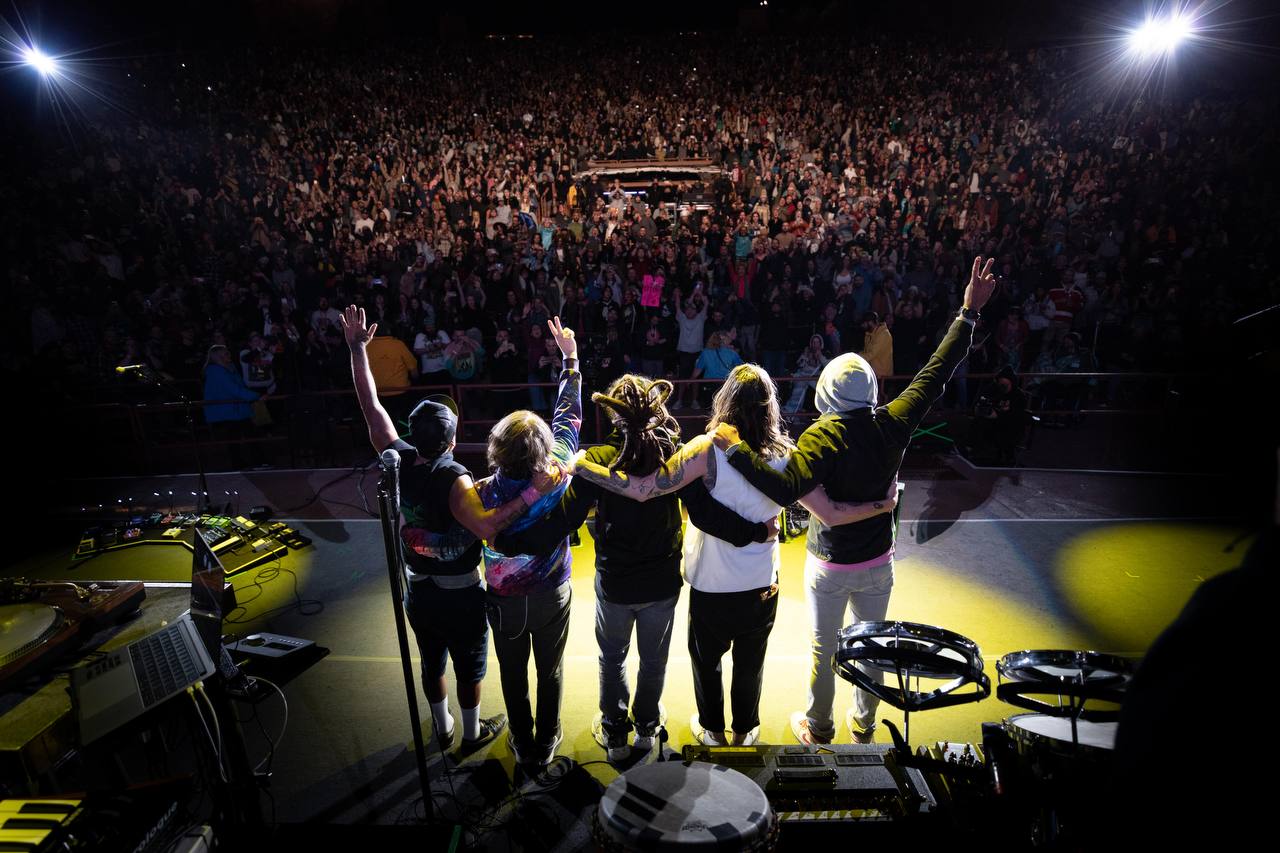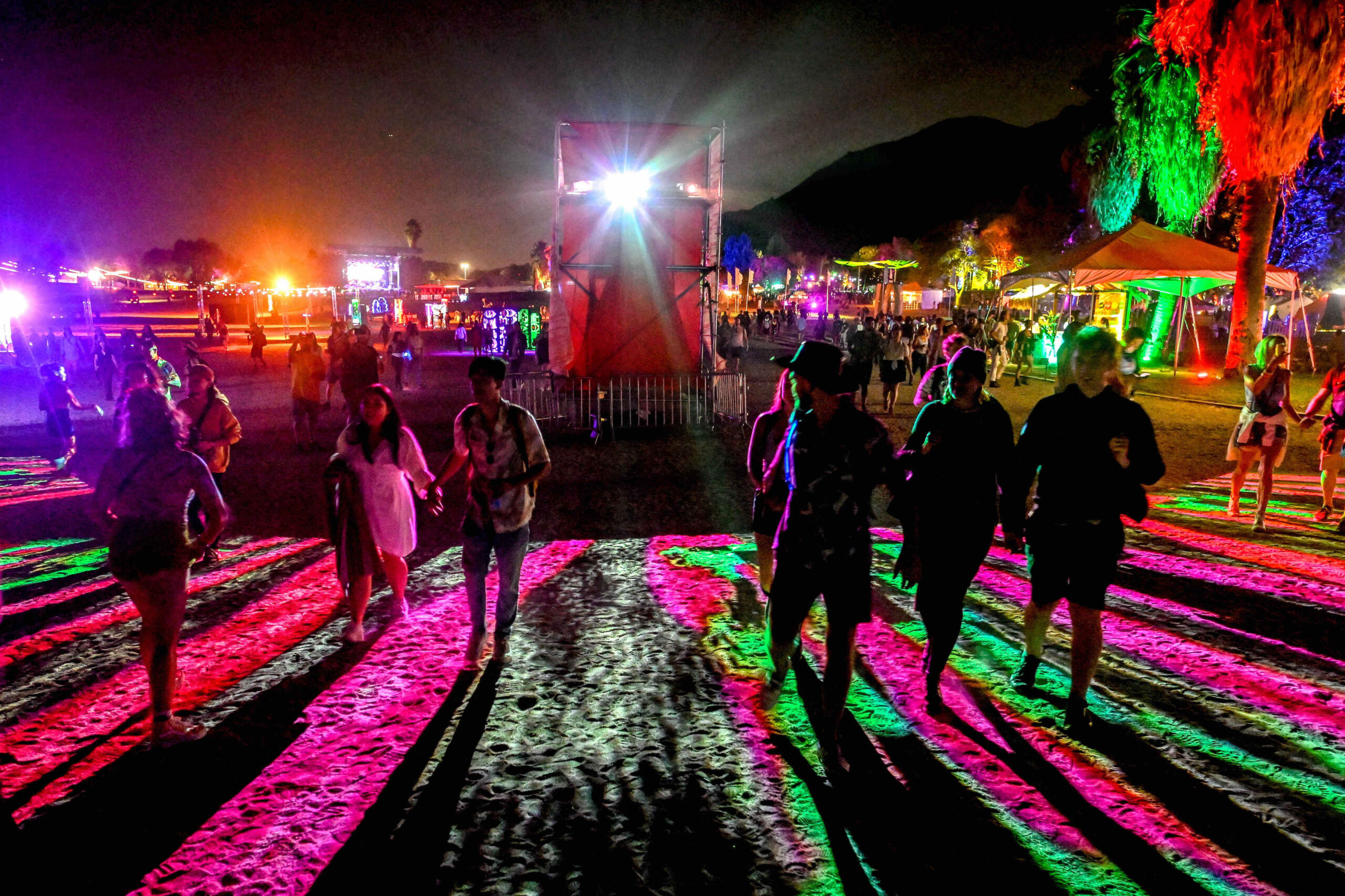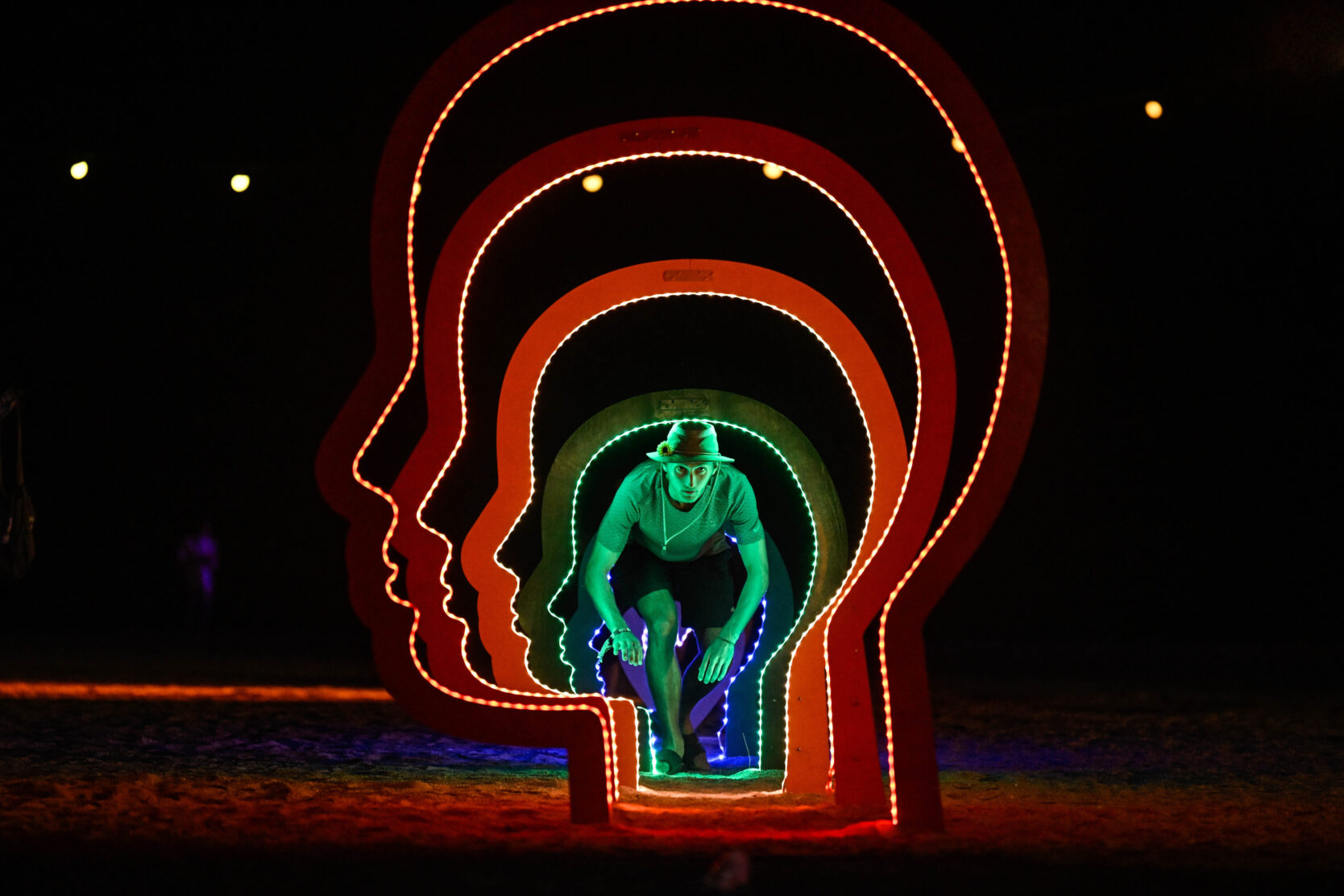In the past couple of years, we’ve learned that Harry Styles likes to take mushrooms, lay on the grass, and listen to Fleetwood Mac and Paul McCartney, that Kacey Musgraves had a psilocybin breakthrough while conceiving her concept album Star-Crossed (during which she was also processing a devastating divorce), and that Jaden Smith discovered how to better express himself after his maiden psychedelic experiences. We’ve seen Sting, A$AP Rocky, Anthony Bourdain, and the Beastie Boys’ Adam Horovitz get personal about the subject in the 2020 documentary Have a Good Trip: Adventures in Psychedelics, and watched Michael Pollan’s best-selling book How To Change Your Mind get adapted into a four-episode Netflix miniseries that brought the subject into millions of homes.
Psychedelics and culture have always been inextricably tied, and they’ve played an integral role in the development of pop music at the hands of the Beatles (Exhibit A: the new deluxe edition reissue of Revolver), the Grateful Dead, Pink Floyd, and many others. But it wasn’t long ago that major mainstream acts such as Styles and Musgraves would have faced significant backlash for even talking publicly about their personal use of psychedelics, much less the mental health and creative benefits they enjoyed from them.
At last, the proverbial psychedelic tide is turning, a development almost surely hastened by the worldwide mental health impact of the COVID-19 pandemic. However, even with a growing number of peer-reviewed studies confirming how psychedelics can help users overcome trauma, addiction, and other issues, and legalization efforts gaining traction across the country, it has been difficult to marshal all the disparate psychedelic resources and organizations in a way that truly magnifies their messages and promotes responsible use.

Enter PORTAL, or the Partnership of Responsible Trippers Advocating Legalization. Created as a cause vertical within the website of leading music-driven social impact organization Propeller, PORTAL has three goals: de-stigmatize the responsible use of psychedelics, educate about their benefits, and advocate for legal accessibility.
The organization aggregates the work of both established and nascent players in the psychedelic space, from the long-running Multidisciplinary Association for Psychedelic Studies (MAPS) and Dance Safe to Chacruna and the Fireside Project, the latter of which is a psychedelic crisis hotline staffed by professionals trained to guide people through a trip. Also featured is Heroic Hearts Project, a non-profit bringing psychedelic therapies to veterans suffering with post-traumatic stress disorder.
As with Propeller’s other issue areas such as climate change and abortion and LGBT+ rights, users accrue points by taking actions such as signing petitions, watching videos, or following psychedelic advocacy organizations on social media, and can then redeem them for concert tickets and exclusive fan experiences with a range of top artists. “We hope to be that bridge for how artists can leverage their platform and educate and inspire their fans to pay attention and take action around psychedelics,” Propeller/PORTAL founder Brandon Deroche tells SPIN. “This isn’t a political issue. It gives artists a way to eloquently talk about psychedelics and what they’ve done for them in their own lives.”
Building off Propeller’s growing presence at U.S. venues, PORTAL recently built campaigns with the Desert Daze and Lightning in a Bottle festivals, helping them deliver experiences that support what Desert Daze assistant festival director Lou Oates calls an “expansion of the collective human, planetary and universal consciousness. Through our partnership with PORTAL, we were fully able to activate a network of practitioners and keynote speakers to deliver a robust series of talks sharing their knowledge and research on the healing properties of psychedelics.”
Meanwhile, PORTAL’s first artist-driven campaign was staged with Incubus around the band’s sold-out Oct. 9 show at Red Rocks Amphitheatre outside Denver, expanding on Propeller’s existing partnership with the legendary venue. Through it, one fan won an expenses-paid trip to Colorado, attended soundcheck, met the band, and watched the concert from the side of the stage. PORTAL also held an after-party at the venue with Incubus DJ Chris Kilmore that was open only to fans who took action at the show.
“In so many ways, it’s an amazing time to be witnessing what’s happening with psychedelics,” Incubus frontman Brandon Boyd tells SPIN. “In my lifetime, I’ve watched it go from something considered illicit and dangerous to something that can potentially cure alcoholism or rid someone of post-traumatic stress disorder. From a day-to-day point of view, the micro-dosing phenomenon has really changed a lot of people’s lives, including some who are close to me who have been on antidepressants or other types of SSRIs for large swaths of their lives.”
He continues, “in my opinion, a large part of that is a growing disillusionment with the kind of pharmacological middlemen — a massive, faceless, corporate conglomerate that doesn’t seem to care about any one person in particular. There are things available to us freely — sometimes right on the edges of our properties and encampments.”

To be sure, many in the psychedelic movement fear how quickly the cannabis industry was corporatized over the past decade, and are actively working to build a different model. PORTAL is also targeting users who may be new to voting and/or issues around psychedelics, helping them make informed decisions in their daily lives and at the ballot box.
“Psychedelics offer us an opportunity to rethink how the traditional pharmaceutical model has worked in prioritizing profit over access and healing,” says Shelby Hartman, the co-founder and editor-in-chief of the magazine and web platform DoubleBlind, whose content and educational videos are prominently featured on PORTAL and who was a featured speaker at Desert Daze. “There’s a lot of really interesting work being done around creative business models for drug development companies, like a stewardship model that gives back to indigenous stakeholders who’ve maintained the wisdom around these plants for many generations. All of this has greater implications for our society beyond whether mushrooms can heal depression.”
For the Glitch Mob member Justin Boreta, working with Propeller and PORTAL is an easy way for artists to connect with fans and causes they care about. “They’ve done the legwork to make this accessible,” he says. “I think it’s important for artists to come out of the psychedelic closet to help normalize the use — to talk about them in terms of mental health, spirituality, or safe recreational usage. It’s time to drop the taboo and have real conversations.”
At MAPS, which was founded in 1986 and remains at the forefront of aiding the scientific study of psychedelics, creative strategist Devon Phillips is tasked with cultivating what he calls “cultural-facing conversations” with musicians and celebrities. The hope is that they’ll be open to telling the full story of their psychedelic experiences, so others can learn from them.
“In a perfect world, we have people coming to us who want to go beyond just talking about their ayahuasca retreat,” says Phillips, who will be involved in MAPS’ contributions to the robust psychedelic programming at the 2023 edition of the South by Southwest festival in Austin, Texas. “We want the good and the bad. We want to know the actual healing and learning process they’ve gone through. We believe research is amazing, but research is only information. True education is transformation. People are looking for ways to heal, and they’re turning to their friends. That comes from platforms that reach barbershops, skate parks, salons, and basketball courts.”
Likewise, Deroche is aiming for PORTAL to provide an actionable platform to artists around psychedelic issues that goes beyond having them simply write a check, and instead creates a meaningful conversation. “Personally, if people want to go to Bonnaroo and take acid, that’s great, but that’s not what we’re promoting, and that’s not what we’re asking artists to promote,” he says. “We can help them go a lot deeper, which is all a part of introducing psychedelics to people for the first time, in the right way. We hope we can offer that outlet to more and more artists, and that they can point their fans to all the organizations we’re supporting and the education we’re providing around the subject.”





